All good!
In the modern scientific world, much research is devoted to the origins of Turkish culture and art. Until recently, the Turks themselves have studied this issue very little. European research workers are none of them interested. What begins Muslim art, where it began?
We have a unique opportunity to touch the art of great Seljuks and not only. To do this, we will look at the exhibits that are exhibited in the Museum of Turkish and Islamic art in Istanbul. Let us trace the development of the culture of the Turkish people from the XI century to the Ottoman Empire
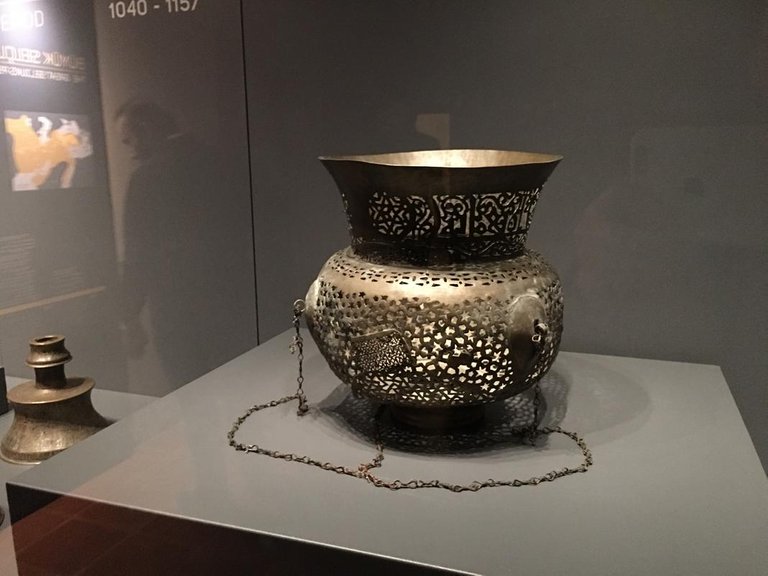
Suspension for oil lamp. Great Seljuk period, XI century
Relevant is the question of how the great era of Seljuks influenced the development of culture and art of the Turkish people. The early stages of the development of art of the Turkish people, scientists at the University of Cambridge viewed through the prism of the history of Byzantium (XI-XIV centuries). Then moving on to Anatolia under the rule of the Mongols, after which they talk about the Ottoman Empire. About the Seljuk era, some researchers remember only in passing, starting to describe the development of the Turkish people only from the XIV century. Other scientists describe in detail the political components of this period, without touching on culture and art.
Until now, scientists historians argue about whether in reality the art inherent only Seljuks or they just acted as a catalyst for all that has already been collected before them. In any case, the great Seljuks accelerated the evolution of Muslim culture
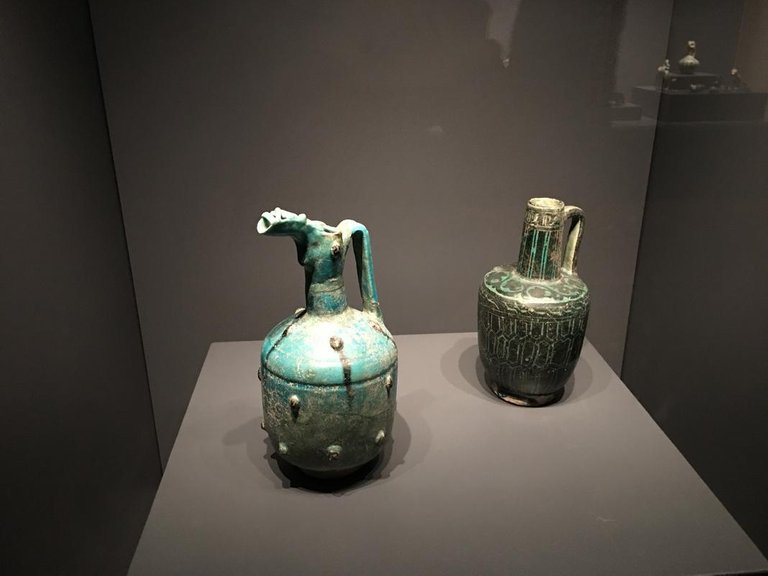
Pitcher of the XII century. The great Seljuk period. Ceramics produced in the city of raqqa in Syria
The unusual shape of the jug, which uses ceramic Frits.
Frit is a kind of glassy powder. It is used to produce glazes, which cover, for example, ceramic product
As you can see on the example of an ancient vase found, Seljuks intensively used the technique of Fritt. At that time, it was not even technology, but art to create beautiful products. Frit gives the product water resistance and, as you can see, a long service life
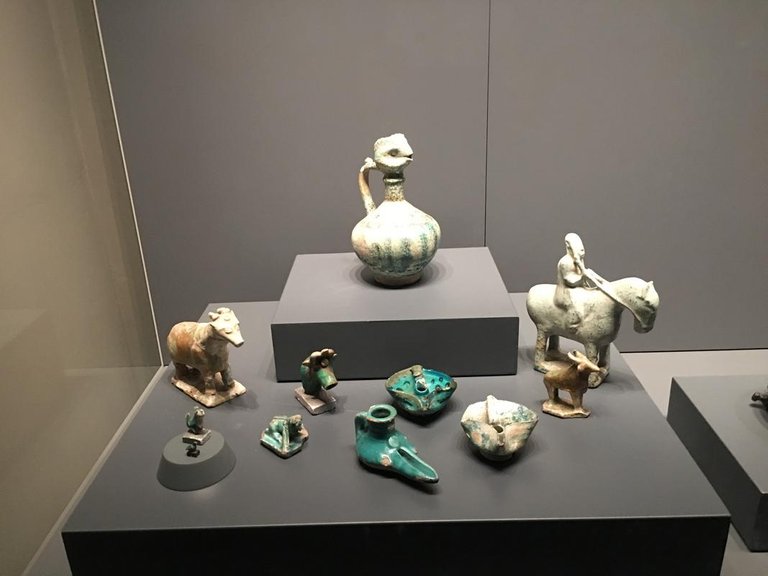
All products belong to the great Seljuk era, XI century
In the Islamic world, ceramic art has been the arena of innovation and invention in many fields such as shape and design, clay preparation, glaze and decoration. Work in this area is the product of great creativity and experimentation.
In the center of the photo is a ceramic vase with an animal's head. There is a curved handle and a bracelet around the neck. Mittova the frosting was turquoise, but on the surface it was quite little
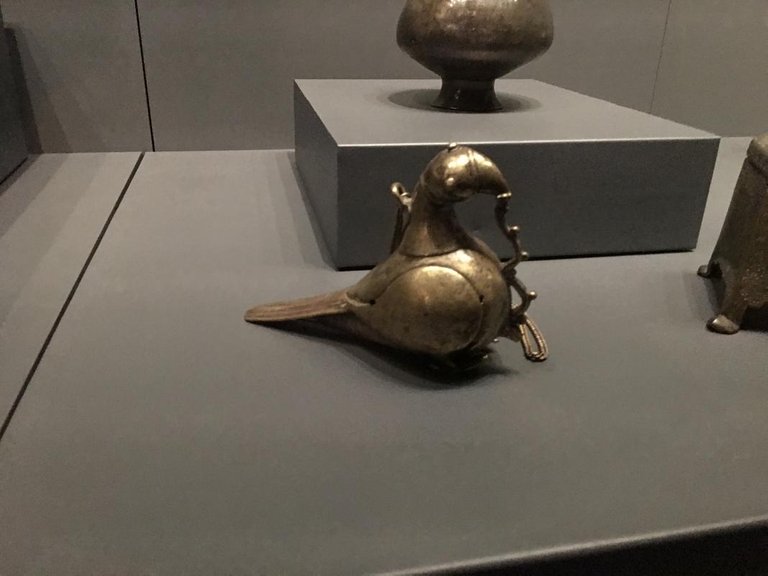
Burner for incense in the form of birds (we call it a censer). Seljuk period, 12th century
The censer is made of brass in the form of a pigeon with a chain. The beak of a pigeon is made like a bird of prey. The whole body of the pigeon is decorated with a very small dotted ornament. At the bottom in front there is a hole for the exit of incense
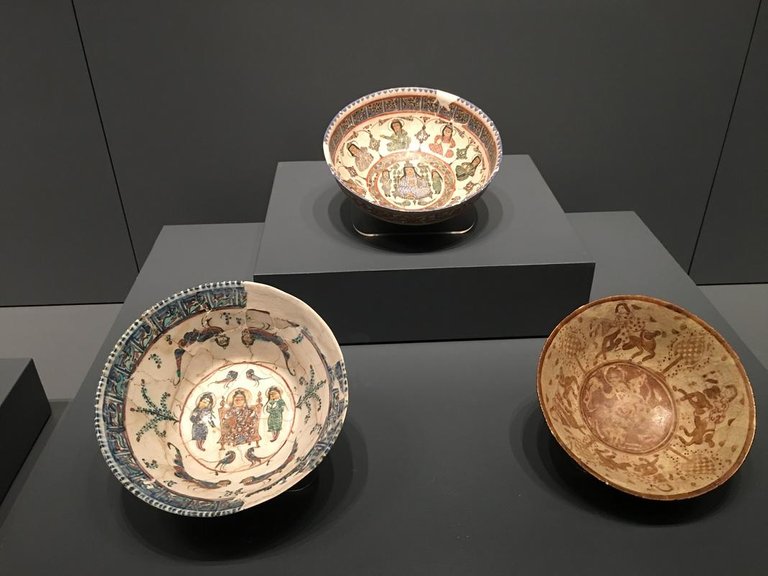
Seljuk period, XII century
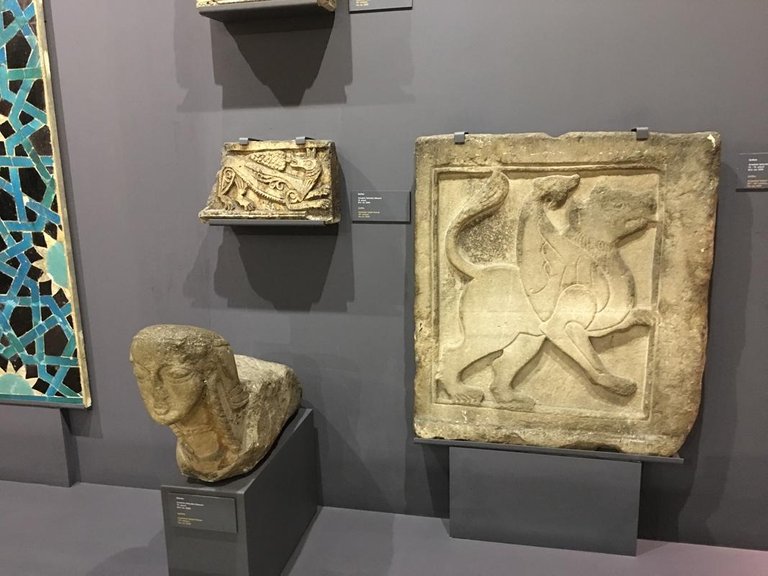
The exhibits of the period of Anatolian Seljuks, XIII century
Female bust.
Bust of a woman in marble. The eyes of the figure are large and almond-shaped compared to the face. Mouth, nose and ears were given in proportion to the face. Face a little flat. The rest of the neck is roughly cut and shaped like a block. It should be understood that the work was done to accommodate the architectural group
- The bas-relief of the dragon
The bas-relief of the dragon is a part of the ornament belonging to the structure of the chapel or pavilion. Dragon-one of the main mythological and symbolic figures of Turkish art
- Griffin-wall bas-relief-part of the architectural group

Seljuk period, XII century
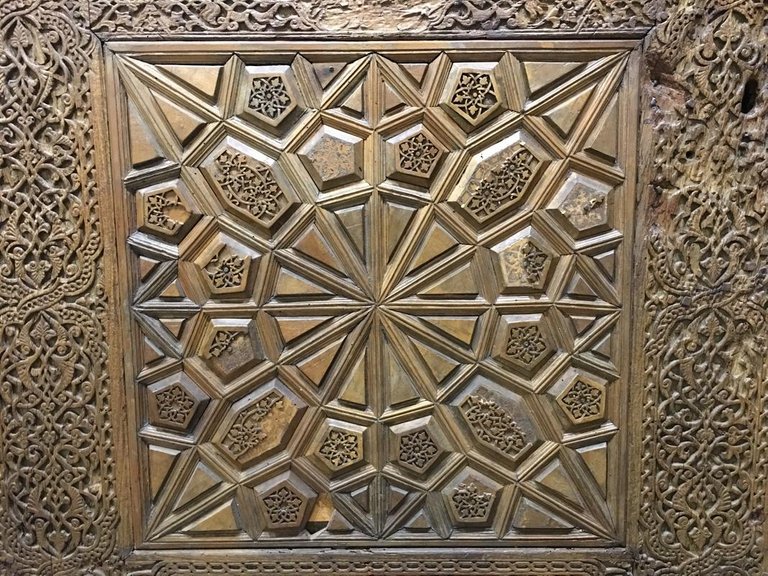
Carving. Anatolian Seljuks, XIII-XIV centuries
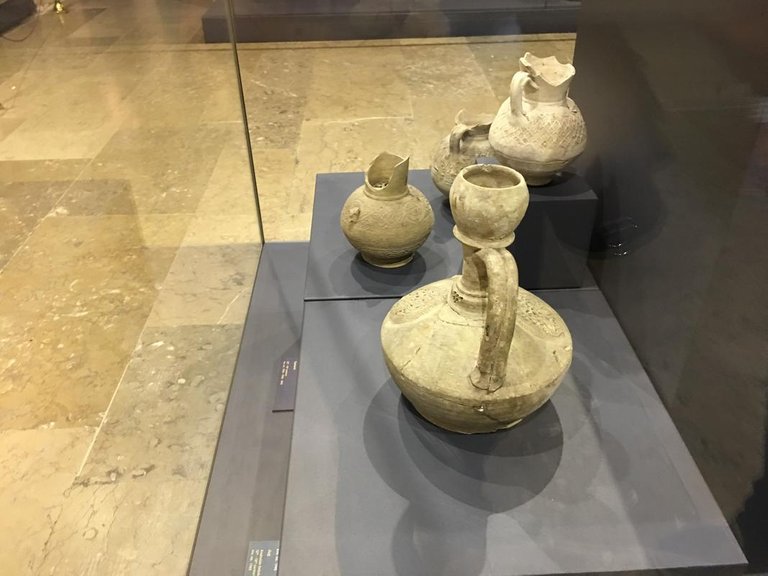
Products of the XII century, Iran
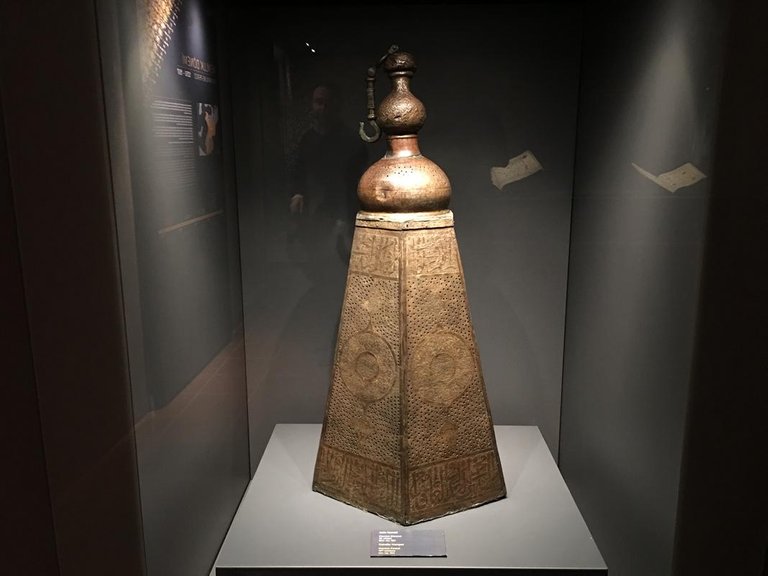
Products XII-XIII centuries, Iran
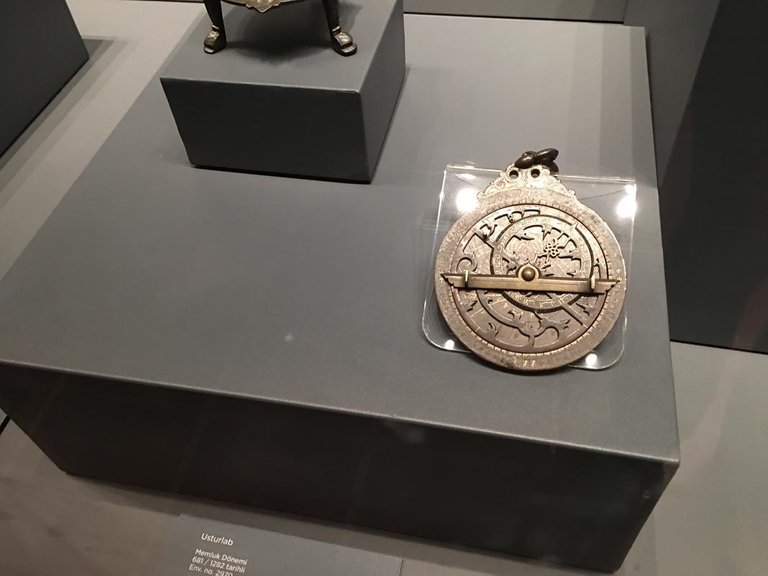
Candlestick. The Mamluk period, fifteenth century
To be continued
Thank you for attention!
More photos of the iPhone 6s+
Hey @lil4a,
APPICS is a new blockchain based social media application launching in Q2 this year. Similar to Steemit, users can earn cryptocurrency tokens for posting creative content, but different to Steemit, APPICS will be focusing on photos or videos instead of blogposts. With the APPICS app we give users the power to monetize time and creativity they spend on social media.I would like to invite you to @APPICS as one of the first APPICS app testers!
The app is currently in beta mode, running on the STEEM blockchain, so you can easily log in with your username and your private posting key as your password.
If you´re interested in joining APPICS, please send us an email at [email protected]
Feel free to visit our website Appics.com for further information.
I‘m looking forward to hear from you!
Best wishes,
Josephine